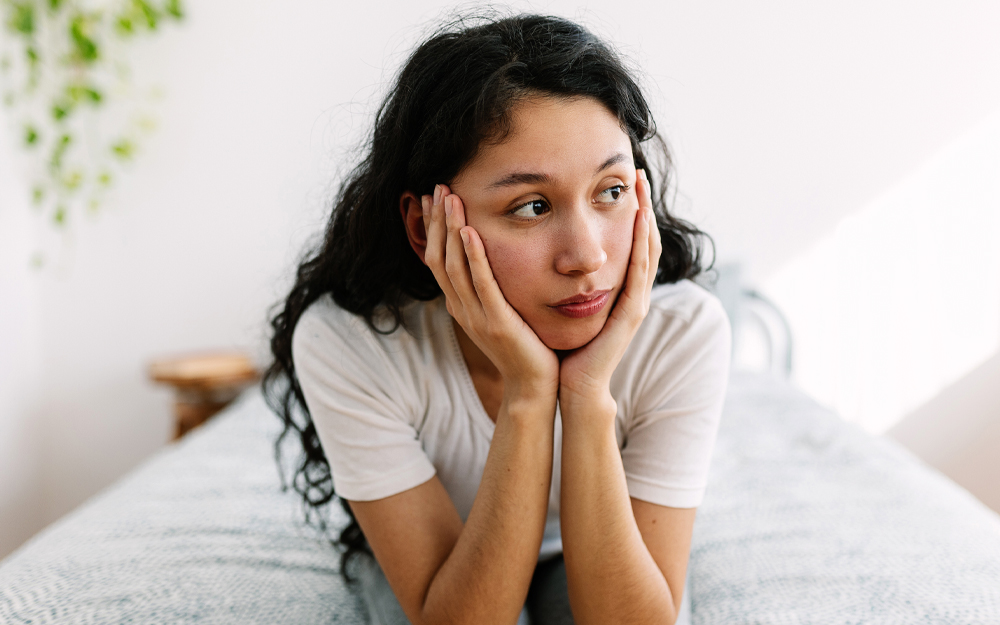What to Know About Women's Sex Drive
Date
June 19, 2023
Credits

Date
June 16, 2023
Credits
Medical providers featured in this article
In Brief
{{cta-block}}
Questions about sex drive—also known as libido—in women don’t have simple, one-size-fits-all answers.
However, they’re still important questions to ask, said Sara Twogood, MD, a gynecologist at Cedars-Sinai’s Los Feliz location.
“Our sexual health affects so many different facets of our life, including playing into anxiety and depression,” Twogood said. “These are health issues that are taken very seriously. Just like you wouldn’t hesitate to ask your doctor about high blood pressure, don’t be afraid to ask about a low libido if it’s bothering you.”
“It becomes a question of, ‘Do I want a higher sex drive, or am I just trying to please someone else?’”
“Normal” is relative
Twogood’s first piece of advice is to understand that everyone’s sex drive is different and affected by many factors.
“Comparing your sex drive to a friend’s or someone that you talk with isn’t going to be helpful,” Twogood said. “Whatever is normal for you is your normal sex drive.”
{{providers}}
When to seek a doctor’s care
If you’re unhappy with your sex drive and it’s causing you distress, it’s a valid health issue worth discussing with your doctor, Twogood said.
Some women may want sex daily, and others might seek sex once every few months.
“A diagnosis, such as hypoactive sexual desire disorder, is based on whether it is a problem for the person experiencing it,” she said. “Does it bother you? Is it affecting your life in any way?”
It can be useful to consult with more than one type of healthcare provider—such as a doctor and a therapist—because some problems might be physical while others might be related to your emotional or mental health status, or relationship issues.
Mismatched libido—where one partner might have a much higher sex drive than the other—can be a complicated issue to navigate.
“It becomes a question of, ‘Do I want a higher sex drive, or am I just trying to please someone else?’” Twogood said.
Ask how a new diagnosis or medication may affect your sex drive
If you receive a new health diagnosis or start a new medication that could affect your sex drive, it may be a good time to consult your doctor.
“Ask specifically if a medication is going to affect your sexual health or libido,” Twogood said. “Develop a plan for what you will do if you have problems with your libido on the medication.”
Be wary of supplements that claim to treat sex drive, Twogood warned.
"Some supplements can work to increase libido, and research supports their use,” she said. “However, supplements in general are not regulated by the Food and Drug Administration. Supplements may be worth trying, but they’re not the answer for everyone—and claims that seem too good to be true probably are.”
Also, be transparent with your healthcare providers about what supplements and prescription medications you take so they can advise you safely and accurately.
Factors that can affect sex drive
Libido can increase or wane for many different reasons.
- General health habits—such as nutrition, exercise and getting enough sleep—can affect sex drive.
- Stress and mental health can cause libido to fluctuate.
- Chronic health conditions—including chronic pain, autoimmune disorders or diabetes—have been shown to affect sexual desire.
- How you feel about your relationship and your attraction to your partner can play a role.
- High blood pressure and vascular conditions can affect the flow of blood to the genitals, affecting arousal.
- Medications can affect sex drive and arousal. For example, allergy medications that dry out nasal passages can also cause vaginal dryness.
“Part of understanding low libido is looking inward,” Twogood said. “It can be frustrating for patients to hear that from their doctor or therapist, but it’s not a cop-out.”
Doing some of the detective work of noticing how dietary changes, mood or life events have caused a change in your libido can be useful to consider ahead of a doctor’s appointment.
Book an appointment specifically to discuss sex drive
Most patients ask questions about sex drive or other sexual health matters at the very end of their doctor’s appointment. “It’s such a disservice to the patient and the problem,” Twogood said. “It’s worth a visit by itself.”
Sexual health is important. Problems with low libido are treatable with medications and other interventions—so help is available.
Primary care doctors, OB-GYNs and urologists frequently see women specifically for libido and sexual health issues.
“If you’ve connected with a provider, and you decide during an appointment to broach a libido issue with them, a better question to ask at the end of the appointment is if they see people with low libido,” Twogood said. “Then you can schedule a follow-up appointment to give the issue the attention it deserves.”
Sexual health can be a very specialized area of medicine, Twogood said. Not all doctors are experts, and it’s fine to seek a second opinion.
“Try not to be discouraged if you feel like a doctor dismissed your problem or tells you it’s not their area of expertise,” she said. “Talk to a different doctor. That’s a really reasonable thing to do.”






